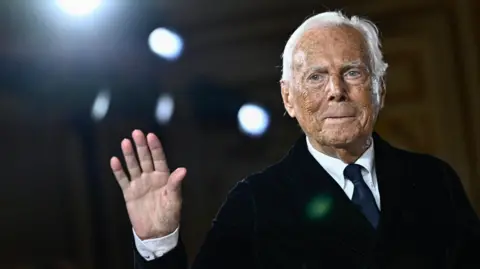Fifty years ago, Arthur Ashe made history by becoming the first black man to win the Wimbledon Men's singles final, defeating fellow American Jimmy Connors. Though his victory was a significant milestone in tennis, Ashe's true passion lay in challenging racial discrimination, particularly through his activism against apartheid in South Africa.
"I don't want to be remembered for having won Wimbledon... it’s not the most important thing in my life," Ashe stated in a BBC interview prior to his death in 1993. Nevertheless, his Centre Court win on July 5, 1975, was an unforgettable moment in sports history, honored with a display at the Wimbledon museum.
At the time of his victory, Ashe was in his thirties, known for his composed demeanor, contrasting sharply with the younger, more volatile Connors. While his athletic achievements were remarkable, Ashe's impact off the court was equally profound.
During the early 1970s, South Africa’s apartheid regime had repeatedly barred Ashe from entering the country due to his vocal opposition to their policies. However, in 1973, he was finally granted a visa to compete in the South African Open, a decision that sparked controversy. Ashe insisted the tournament be open to all spectators, a requirement that led to backlash from anti-apartheid activists in the U.S. and parts of the black community in South Africa.
Richard Evans, a British journalist who accompanied Ashe on this trip, recalls how Ashe was aware of the accusations that he was legitimizing the oppressive government. Yet, he believed that to discuss South Africa effectively, he needed firsthand experience of its realities. This conviction guided his actions during his visit, including a tennis clinic for black youth in Soweto, which left a lasting impression on many South Africans.
Mark Mathabane, a young boy at the time, recalled Ashe as "Sipho," a Zulu word meaning gift. After Ashe’s visit, he went on to create the Arthur Ashe Soweto Tennis Centre, which continues to nurture young talent and aims to instill life skills and leadership qualities.
Despite facing criticism, Ashe’s reluctance to disengage from South Africa ultimately evolved into a staunch advocacy for an international boycott against the apartheid regime. This included significant efforts such as founding the organization Artists and Athletes Against Apartheid, which rallied support for sanctions against the South African government.
Ashe’s insights into the struggles of his South African counterparts were informed by his experiences growing up in racially segregated Richmond, Virginia. His legacy of activism resonated deeply, leading him to become a key figure for Nelson Mandela, who recognized Ashe’s influence and invited him to events following his release from prison.
As we recognize Ashe's contributions in 2023, Wimbledon has installed a new exhibit to mark the anniversary of his legendary win and is conducting workshops celebrating his trailblazing accomplishments. While many honor Ashe for his tennis prowess, like Mathabane, many remember him for liberating minds and inspiring change in society.
Arthur Ashe’s legacy transcends his achievements in sports, embodying a powerful commitment to justice and equality, leaving an indelible impact on both tennis and the fight against oppression.





















